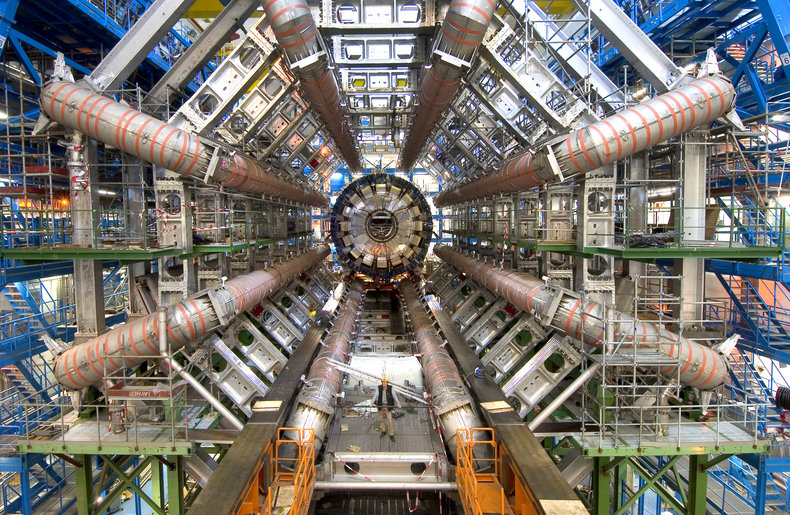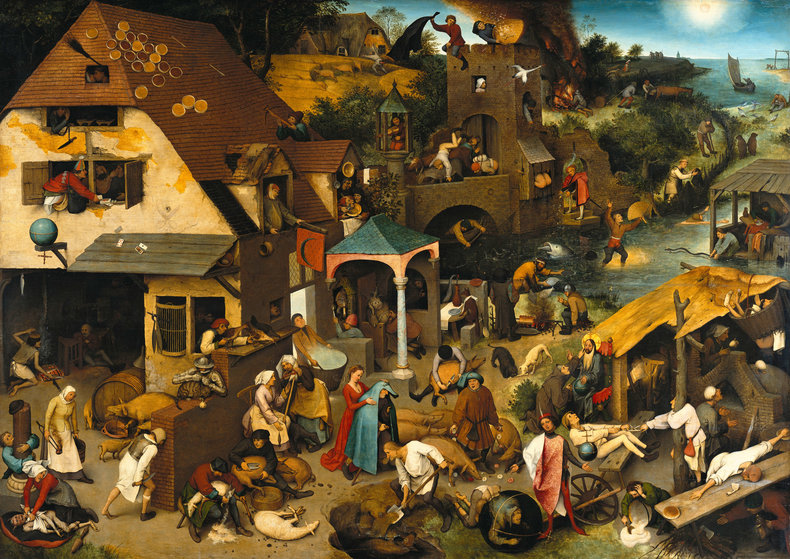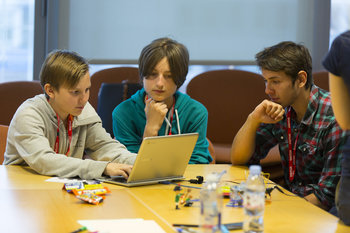
Deterministic Systems
Historically, science largely viewed the world as a deterministic system whereby the same inputs always create the same outputs. These systems demonstrate no randomness whatsoever. This has a large number of implications that people may find bleak as this means the future is predecided.
Non-Deterministic Systems
Non-deterministic systems are systems that are influenced by randomness such that they can be modeled with probability theory but not fully predicted. For example, computers are deterministic but software can be fully non-deterministic. This includes software that purposely uses random numbers to improve an algorithm or inherent randomness such as software results that are influenced by the timing of events that are outside the software's control such as a busy CPU. Artificial intelligence is almost always non-deterministic because it uses statistical models that inherent rely on random sampling.
Uncertainty
Deterministic processes can be effectively random if you don't have the data and capabilities required to model them. This includes processes that have yet to be modeled successfully by science, mathematical problems with no known solution and things that go unmeasured and uncalculated. For example, if you throw a dice you could theoretically know which number will come up by how you throw it but this is typically too difficult to calculate such that the result is effectively unpredictable and random from your perspective.
Pseudorandom
Pseudorandom is the simulation of random numbers using a deterministic process that isn't truly random. Random numbers have broad applications to science, mathematics and computing such that it is very common for a process, calculation or procedure to require random numbers. This is a surprisingly difficult problem as computers are completely deterministic such that they are terrible at generating randomness. Nevertheless, programming languages, operating systems and platforms typically support simulated random numbers that are described as pseudorandom. These are deterministic such that if you request a random number at the same time with the same input you will always get the same number back.
Hardware Random Number Generator
Random numbers are so important to computing and applications in areas such as statistics that some computers are equipped with hardware that can generate true random numbers. These sample physical processes such as thermal noise that are considered random. Information security, particularly cryptography, requires real random numbers and this is driving the adoption of hardware random number generators in a broad array of devices.
Noise
Some types of noise are considered to be random processes. For example, Johnson–Nyquist thermal noise results from the random motion of free electrons in a conductor as a result of temperature. This is considered fully unpredictable and is generated by all modern electronics.
Entropy
Entropy is the amount of randomness in a system that is often described as disorder. The entropy of an isolated system increases over time. In other words, systems experience random changes that make them more disordered. This can be viewed as a process of aging whereby everything including the observable universe, solar system, planet earth, societies, machines and people experience random changes that make them less ordered and more complex.
Complexity
Extremely complex processes appear to be random in the sense that then can't be predicted with current knowledge and tools. In some cases, complex systems can be predicted for a short time but long term predictions are too complex to be calculated with current computing infrastructure. For example, 6-10 day precipitation forecasts are only completely accurate 40% of the time. Predicting the weather a month in advance is effectively impossible or pointlessly inaccurate.
Human Behavior
Humans as groups can be remarkably unpredictable such that some models simply give up and view behavior as random. For example, investment banks commonly view retail investors as noise traders because their buy and sell decisions appear to be random or at least it is very difficult to predict their behavior using standard logic.
Spontaneity
Humans common describe their own behavior as random, spontaneous or inspired. This may be due to the inherent complexity of the human mind or humans may indeed have the capability to do something that they wouldn't do in a parallel universe where their life was exactly the same. This is a fundamental philosophical question that has been intensively debated since antiquity.
Quantum Mechanics
Quantum mechanics is an important branch of physics that studies nature at its smallest scale. Advancements in quantum mechanics in the 20th century shattered the historical scientific view of the world as being a deterministic system. According to generally accepted quantum mechanics, small particles exhibit a degree of randomness.
Chaos Theory
Chaos theory is the study of small changes that have a large impact on the future. Such small changes aren't necessarily random themselves but they make the future extremely difficult or perhaps impossible to predict. Chaos theory was founded by Edward Lorenz, an American mathematician and meteorologist who noticed that small changes to inputs in a weather model created dramatically different weather some time later. This is often summarized in the well known thought experiment known as the butterfly effect whereby a butterfly that flaps its wings could theoretically cause a tornado a week later a thousand miles away. Chaos is so difficult to predict that it is effectively random.
Emergence
Emergence is when a system changes with the individual actions of its adaptive parts without centralized goals, plans or coordination. These exhibit high chaos such that they are unpredictable. Despite their lack of a plan, emergent systems tend to become efficient, resilient, complex and highly adapted over time. Examples of emergent systems include capitalist economies, societies, cultures, cities and information technologies. Due to their chaos, emergent systems are effectively random and are truly random if they are non-deterministic systems. Emergent systems are often highly organized thus discrediting the view that randomness is equivalent to disorder.
Strange Attractor
A strange attractor is a chaotic and potentially random process that tends towards a fractal structure that demonstrates self-similarity. For example, snowflakes are created with a chaotic process which involves the crystalization of water around a dust particle in a supersaturated air mass that creates fractal patterns that appear to be highly structured.
| Overview: Randomness | ||
Type | ||
Definition | A lack of predictability. | |
Related Concepts | ||































